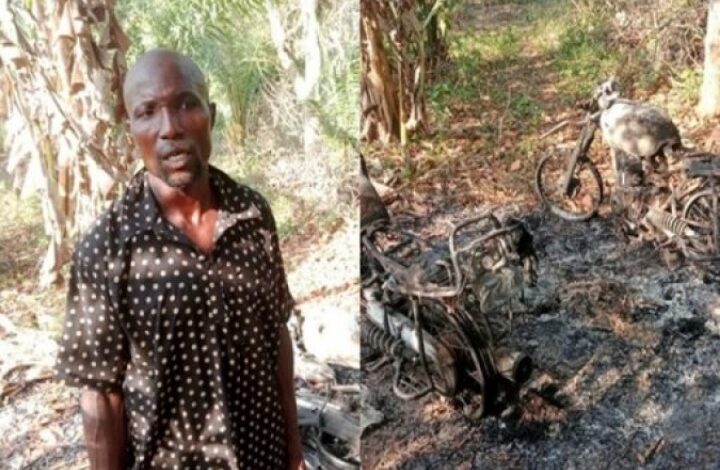Fresh communal clash in Osun leaves 30 injured, homes razed

Osun State descended into chaos Friday as a renewed land dispute triggered violent clashes between Ifon and Ilobu communities.
Consequently, over 30 individuals, including women and children, sustained injuries, while arsonists razed homes and shops, displacing countless families.
Eyewitnesses reported escalating tensions since dawn, with social media videos capturing widespread destruction.
Meanwhile, residents from both sides traded accusations, each blaming the other for instigating the crisis.
The Concerned Youth of Ifon Osun swiftly condemned the attacks, alleging Ilobu residents targeted their properties overnight.
“We refuse to tolerate midnight raids on our shops and homes,” they asserted, demanding immediate government intervention.
Furthermore, they criticized persistent aggression against ancestral lands, despite repeated appeals for peace by their traditional ruler, Oba Peter Oluwole Ipadeola.
Conversely, Ilobu’s Otun Jagun, Chief Leke Ogunsola, vehemently denied involvement, accusing Ifon indigenes of launching unprovoked assaults.
“Since Tuesday, they’ve attacked our farmers in Agbere Onireke and Opapa,” he claimed, detailing burned motorcycles, destroyed houses, and traumatized families fleeing to makeshift shelters.
Disturbingly, Ogunsola revealed locals extracted bullets from victims using traditional methods at Ilobu’s palace. “We’ve treated 30 injured, but more arrive hourly,” he stated, underscoring the crisis’s severity.
As tensions persist, residents urgently implore state authorities to mediate before further bloodshed. However, the Osun Police Command remains tight-lipped, with spokesperson Akeem Adeoye merely promising, “We’ll respond soon.”
This clash highlights the dire need for robust conflict-resolution frameworks to address land disputes. Additionally, displaced families now endure precarious conditions, awaiting government aid to rebuild shattered lives.
Critically, both communities harbor deep-seated grievances, yet dialogue remains elusive.
While Ifon youths demand justice for destroyed livelihoods, Ilobu leaders insist their innocence, creating a stalemate.
Historically, land conflicts in the region have simmered for decades, often erupting into violence.
Therefore, experts urge proactive measures, including boundary demarcations and community reconciliation programs, to prevent recurrence.
Meanwhile, humanitarian groups scramble to provide emergency aid, but resources dwindle as displacement numbers rise.
Tragically, children now miss school, and farmers face ruined harvests, deepening economic despair.
In conclusion, this crisis underscores governance failures in dispute management.
Until authorities prioritize mediation and enforce accountability, peace will remain a distant hope for Ifon and Ilobu.
Post Views: 103





